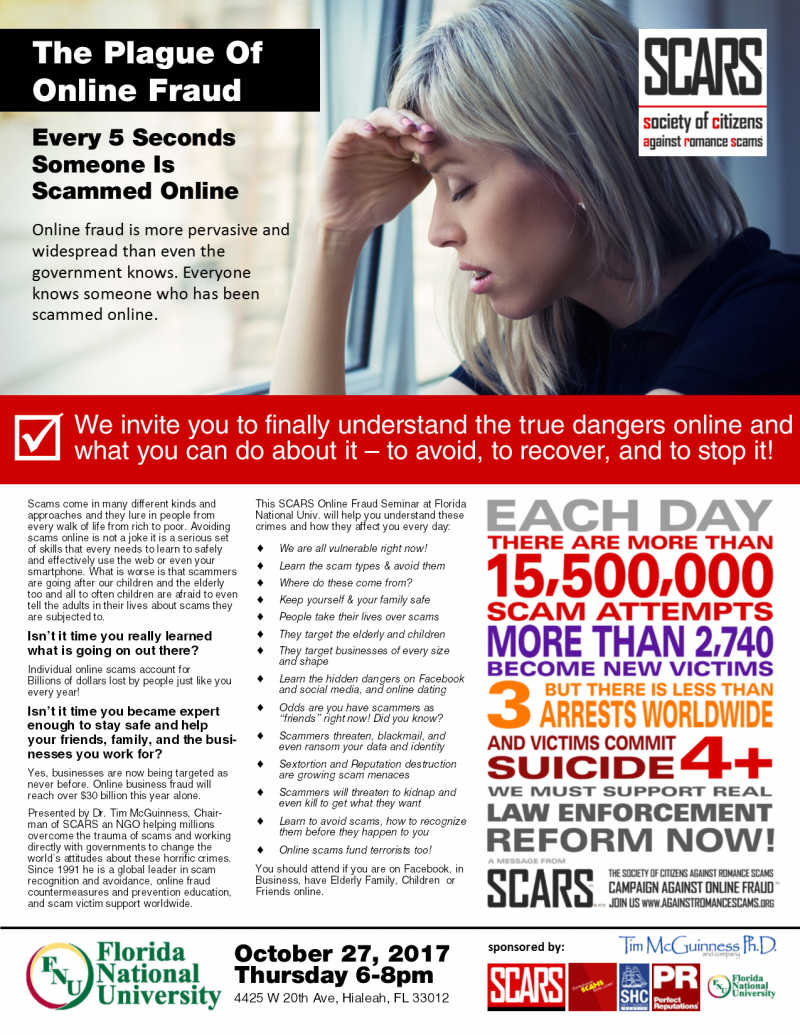The Plague Of Online Fraud
Every 5 Seconds Someone Is Scammed Online
Online fraud is more pervasive and widespread than even the government knows. Everyone knows someone who has been scammed online.
We invite you to finally understand the true dangers online and what you can do about it – to avoid, to recover, and to stop it!
October 27, 2017 Thursday 6-8pm
at Florida National University in Miami – 4425 W 20th Ave, Hialeah, FL 33012
Scams come in many different kinds and approaches and they lure in people from every walk of life from rich to poor. Avoiding scams online is not a joke it is a serious set of skills that every needs to learn to safely and effectively use the web or even your smartphone. What is worse is that scammers are going after our children and the elderly too and all to often children are afraid to even tell the adults in their lives about scams they are subjected to.
Isn’t it time you really learned what is going on out there?
Individual online scams account for Billions of dollars lost by people just like you every year!
Isn’t it time you became expert enough to stay safe and help your friends, family, and the businesses you work for?
Yes, businesses are now being targeted as never before. Online business fraud will reach over $30 billion this year alone.
Presented by Dr. Tim McGuinness and SCARS an NGO helping millions overcome the trauma of scams and working directly with governments to change the world’s attitudes about these horrific crimes. Since 1991 he is a global leader in scam recognition and avoidance, online fraud countermeasures and prevention education, and scam victim support worldwide.
This SCARS Online Fraud Seminar at Florida National Univ. will help you understand these crimes and how they affect you every day:
- ¨ We are all vulnerable right now!
- ¨ Learn the scam types & avoid them
- ¨ Where do these come from?
- ¨ Keep yourself & your family safe
- ¨ People take their lives over scams
- ¨ They target the elderly and children
- ¨ They target businesses of every size and shape
- ¨ Learn the hidden dangers on Facebook and social media, and online dating
- ¨ Odds are you have scammers as “friends” right now! Did you know?
- ¨ Scammers threaten, blackmail, and even ransom your data and identity
- ¨ Sextortion and Reputation destruction are growing scam menaces
- ¨ Scammers will threaten to kidnap and even kill to get what they want
- ¨ Learn to avoid scams, how to recognize them before they happen to you
- ¨ Online scams fund terrorists too!
You should attend if you are on Facebook, in Business, have Elderly Family, Children or Friends online.




Please Leave A Comment - Tell Us What You Think About This!